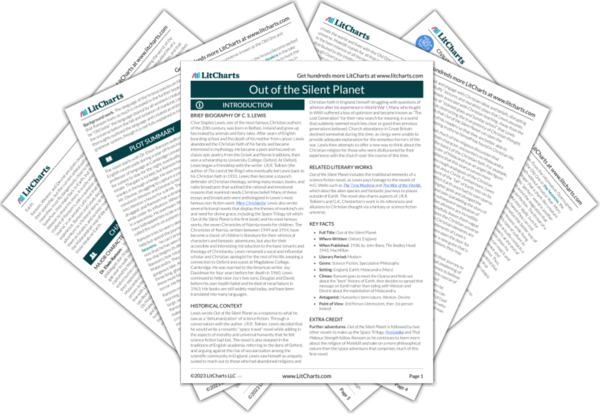AI ToolsNew
Tools to make learning and teaching easier
|
Previous
Chapter 19
|
Out of the Silent Planet: Chapter 20 Summary & Analysis |
Next
Chapter 21
|


Upgrade to unlock the analysis and theme tracking for all of Out of the Silent PlanetOut of the Silent Planet!
Get LitCharts A+